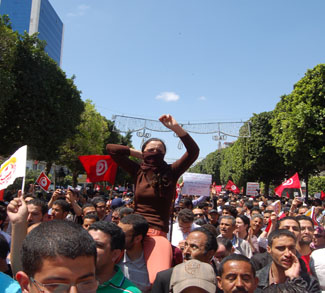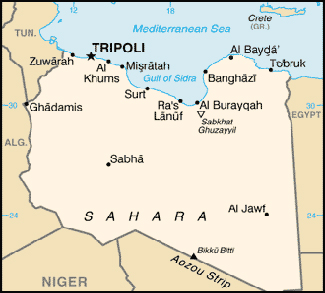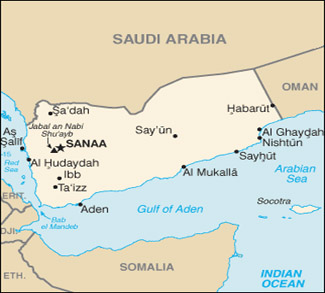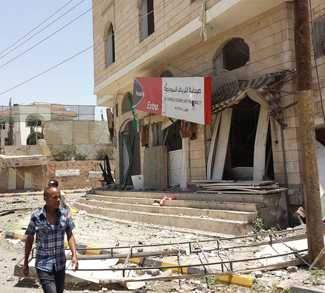The assassination of Mohammed al-Brahmy during Republic Day celebrations on July 25th, 2013 triggered a tidal wave of protests and demonstrations across Tunisia as people took to the streets to reject this violent act, which came a mere six months after the assassination of Shokri Belaid, the secretary-general of the opposition Unified Nationalist Democrats Party. Out on the streets, Tunisians expressed their rage towards the first and second temporary governments’ inability to arrest the perpetrators of these crimes, even after uncovering their identities and links to various militant religious groups.
In the wake of al-Brahmy’s assassination, Tunisia is now facing a dangerous turning point in its transition period, one that will inevitably impact the future politics of the country. Almost all opposition parties, democratic associations, and civil society organizations have come together to demand the government and the National Constituent Assembly dissolve, even after more than 45 deputies of the Council withdrew their support in a move to paralyze the work of the Council and induce an early dissolution.
Protestors are accusing the government and the al-Nahda (renaissance) Party (the most organized party in the country and the main component of the interim government, which also has a majority in the National Constituent Assembly) of being behind the assassinations. As a result, Al-Nahda has suffered repeated attacks on its local and provincial offices throughout the demonstrations.
In The Shadow of Egypt
The fallout from the Mohamed Morsi toppling has spread to Tunisia, and it seems clear that al-Nahda is trying to prevent a repeat of what happened to the Muslim Brotherhood in Egypt.
Yet these attempts might be frustrated by the fact that the Brotherhood in Tunisia followed much of the same steps as their counterparts in Egypt. For one, al-Nahda has been unable to solve Tunisia’s economic crisis. The trade deficit has reached record levels, inflation has spiked, and the unemployment rate remains very high. In the political sphere, al-Nahda has failed to initiate a national dialogue promoting reconciliation; it has attempted to control vital national public offices; and it has carried on its own separate agenda under the banner of religion. In doing so, they have ignored many of the country’s most pressing issues.
This latest assassination of a member of the opposition is expected to increase the pressure on the Tunisian Brotherhood, which is now facing attempts by its opponents to transplant the situation that toppled the Egyptian Brotherhood into Tunisia. If the current government falls, it officially marks the failure of a transitional period that has so-far produced a constituent assembly (that was supposed to draft a constitution) and an Islamist-led government.
Thus, the biggest challenge for the Brotherhood now and in the future is how not to lose power in Tunisia after the removal of their counterparts in Egypt. To survive in the face of plummeting popular support, al-Nahda is depending on support from the Global Muslim Brotherhood organization and the government of Recep Tayyip Erdogan in Turkey. The failure of the movement to preserve its rule and the fall of the Brotherhood government through the legitimacy of votes would represent a final defeat of the group and the failure of the Global Brotherhood organization. In addition, it would end Erdogan’s ambitions of turning his country into a “command and control center” for the region’s Muslim Brotherhood project.
The West and Tunisia
The dramatic transformations taking place in Egypt and Tunisia suggest a reversal in the initial outcomes of the Arab Spring. Though the U.S. initially supported Brotherhood rule in Egypt, Tunisia, and Libya, subsequent events, mainly the war in Syria and the attack on US diplomats in Libya, have no doubt called the wisdom of this initial position into question. One way to subtly shift positions would be for regional and international players to take advantage of internal forces that already exist within Tunisia and push for an overthrow of the al-Nahda movement. This could be achieved by focusing on “fatal” errors that the Brotherhood has already made in political and economic matters, as well as their dubious commitment to the consensus that is required for a country in transition.




